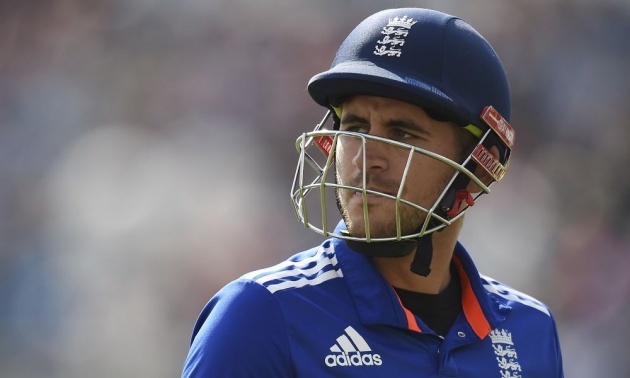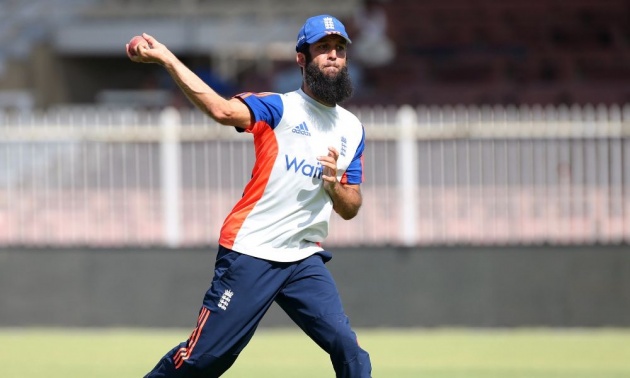In their last UAE tour England followed a Test series drubbing with one-day success but a less experienced side may find the going tougher this time.

If the England camp require cheering up after losing the Test series against Pakistan and dropping to sixth in the Test rankings, they might contemplate what happened in February 2012 on their last tour to the United Arab Emirates. Then they were defeated 3-0, more ignominiously in the Test series than in the past few weeks with an infinitely more experienced batting side as well as two proven top-class spinners. But they went on to dominate the subsequent one-day series, winning all four games comfortably.
On hand to remind the current squad of that triumph are the captain, Eoin Morgan, and Jos Buttler, whose memories of that series may not be entirely positive. In his solitary game Buttler, selected as a specialist batsman, made his ODI debut and got a second-ball duck, so the UAE may not currently be Buttler’s favourite venue.
Those fixtures took place only three and a half years ago but it seems longer than that. A brave one-day world seemed to be on the horizon with a dynamic new opening pair carrying all before them. Alastair Cook and Kevin Pietersen strode out together, no doubt punching gloves at regular intervals, and between them they notched four centuries. A few gallons of water – and vitriol – have flowed under the bridge since then.
England’s likely opening pair this time, Alex Hales and Jason Roy, certainly possesses a certain dynamism but as yet no centuries in ODI cricket. In fact they have never come close. Between them they have managed four fifties in 29 ODI innings. Hales has been out in the UAE for a long time, probably too much of it spent with a 12th man’s bib on his shoulders, so he should at least be acclimatised.
But now is the time for some substantial innings. In the UAE it takes time at the start of every knock to become accustomed to the sluggish tracks. But if that is achieved, heavy run-scoring is possible.
Hence opening the batting, against a new ball more likely to speed off the bat, is an advantage but also a major responsibility. Tantalising twenties are no good. Hales in particular may be eyeing a Test slot in South Africa, albeit in vastly different conditions. So the selectors will be keeping an eye not so much on technique as temperament. On paper at least England have only one cricketer in their squad who cannot really bat, Reece Topley, so there should be hope in every run-chase.
To the relief of the Pakistan batsmen there will be no torment at the hands of Jimmy Anderson or Stuart Broad, both of whom were outstanding in the Test series. Neither has officially retired altogether from white-ball cricket so they may yet resurface somewhere when it is deemed to be really important, though such a strategy seems at variance with Andrew Strauss’s eagerness to improve England’s one‑day cricket.
There is, however, the assumption that Anderson and Broad are now best preserved for Test cricket. And that may be their preference.

The slow bowlers will again be under scrutiny. Moeen Ali and Adil Rashid were easily outgunned in the Test series, which was no surprise. Moeen has never in his limited bowling career been a successful prime spinner on a turning track, where slow bowlers are expected to take charge. So it was always a long shot that he would be able to prevail in the Test series.
That role requires a different mind-set from being a support bowler on seaming tracks, which is when Moeen has been successful in his Test career. Oddly, the fact that the ball is turning can make life more difficult for a spinner. Expectations change and so does the intent of the best batsmen, who become more aggressive in an effort to disrupt their opponents. Moeen has never endured that peculiar pressure even in county cricket.
Currently Moeen is more comfortable as a bowler on pitches that are not turning much and he is more likely to have an impact with a white ball when not required to go hunting for wickets. Despite the disappointments of the last month it would be a surprise if he does not continue as England’s solitary spinner in their Test side in South Africa. But the chances of his remaining Cook’s opening partner are slim.
Buttler’s immediate future is more uncertain. Here lies the trickiest decision for the selectors since it is hard to envisage all three of James Taylor, Jonny Bairstow and Buttler in the same side. Buttler, at his best, is a proven matchwinner in this form of the game, much more obviously so than in Test cricket; it was not so long ago that he was Morgan’s vice-captain.
Morgan clearly values Buttler’s presence in the side. But can the selectors see any signs that he is anywhere near his best at the moment? And can they justify omitting either Taylor or Bairstow, who has been reunited with his wicketkeeping gloves in the last week?
No doubt Pakistan can still remember being beaten so emphatically by England three years ago. This may explain why they are not too obsessed with building for future ICC tournaments. The 37-year-old Younis Khan, who was dropped after the last World Cup, has been recalled. Given that he was in such sparkling form in the Test series this may not delight the English bowlers greatly, especially their spinners.



